September 16, 2015
Edited by David Sanders
Specimen Days
1547 – Abu al-Faiz ibn Mubarak Faizi, Persian-Dutch East Indies poet, is born.
1672 – Anne Bradstreet, New England's first published poet, dies (birth date unknown).
1685 – John Gay, English poet (Beggar's Opera), is born.
1845 – John Kinker, translator/philosopher/poet, dies at 81.
1880 – Alfred Noyes, British poet/essayist (Loom of Years, Highwayman), is born.
1887 – Hans/Jean Arp, French/Swiss painter/poet/sculptor, is born.
1905 – Vladimír Holan, Czech poet (d. 1980), is born.
1920 – Daniel Andersson, Swedish poet/writer (Polar History), dies at 32.
1987 – Howard Moss, American poet, dramatist, and critic (b. 1922), dies.
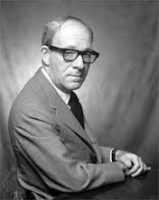
Roundly in its fury, soon, the sun
Feverish with light, goes down, and on
Come ambitious stars—the stars that were
But this morning dimmed. Somewhere a slow
Piano scales the summits of the air
And disappears, and dark descends, and though
The birds turn off their songs now light is gone,
The mind drowned in the dark may dream them on.
—from “A Balcony with Birds” by Howard Moss (1922–1987)
and though the birds turn off their songs now light is gone, / the mind drowned in the dark may dream them on. —Howard Moss
World Poetry
Sheikh Mohammed bin Rashid Writes Poem in Honour of Fallen Soldiers

Sheikh Mohammed bin Rashid, Vice President and Ruler of Dubai, has glorified the sacrifices made by Emiratis in a nabati poem titled We’re all the Nation’s Soldiers. The poem is a monologue addressed to Sheikh Mohammed bin Zayed, Crown Prince of Abu Dhabi and Deputy Supreme Commander of the Armed Forces. It emphasises the people’s love for Sheikh Mohammed bin Zayed and their willingness to follow him. Citizens are the protective fence of this nation and their lives are a small price to pay, writes Sheikh Mohammed bin Rashid.
Syrian Poet Granted Refuge in Barcelona
Barcelona City Council and Catalan PEN yesterday welcomed the Syrian poet, Ugar to the city. Barcelona is a member of the International Cities of Refuge Network (ICORN), and the Catalan Branch of PEN International has been welcoming persecuted writers to their city for the past ten years. Ugar uses this pseudonym to avoid the public dissemination of his name, and he has asked the press not to show his face in the pictures to protect his family in Syria.
Sheikh Mohammed bin Rashid, Vice President and Ruler of Dubai, has written a poem titled “We’re all the Nation’s Soldiers.”
Recent Reviews
‘The Complete Works of Auden’ Showcases Writings beyond the Poetry
by Michael Dirda
Where should the praise go for this magnificent edition of W.H. Auden’s prose, now rounded off by its final two volumes? To the great Anglo American poet himself for having produced such incisive and memorable criticism? To Edward Mendelson, whose scrupulous editing calls to mind Samuel Beckett’s phrase “No author better served”? Or to designer Jan Lilly and the Princeton University Press for the elegance and beauty of the books themselves? One thing is certain: This is what scholarly publishing is meant to be.
A Swarm of Bees in High Court
by Juliette Lee
A long nocturne, Tonya Foster’s long-awaited debut collection A Swarm of Bees in High Court roves in and out of the dream of Harlem. This rich cityscape, pregnant with so much history and tension, floats through the consciousness of the poetic speaker, whose sleeplessness leads her into a series of meditations on memory, desire, and daily life. Her worries, dissatisfactions, and poignant joys take flight into song through the sonic pleasure of her word play and permutations.
Jackleg Opera: Collected Poems
by Michael Young
Jackleg Opera is the fourth collection by BJ Ward and is a collected poems gathering together over twenty years of amazing work. It was published at the end of 2013 by North Atlantic Books and should be on everyone’s bookshelf. Ward’s poetry is an incredible blend of wit, intelligence, playfulness and insight. He is a poet that not only loves language and craft but loves humanity, the adept phrasing that reflects the hidden emotional realities, charting what Emily Dickinson called the “internal difference where the meanings are.”
Deep Pain
by Jonathan Farmer
“Beauty that does not disguise the wound,” Mark Doty writes in Deep Lane, his ninth book of poems, “but reads through to the lack it marks.” It’s the opening of "Ars Poetica: 14th Street Gym,” a short, graceful poem, just 10 four-beat lines, in which Doty describes a one-armed man doing chin-ups and the tattoo covering (but not obscuring) the joint where there is no arm.
“Jackleg Opera” is the fourth collection by BJ Ward and is a collected poems gathering together over twenty years of amazing work.
Broadsides
“Mountainish inhumanity”: Thomas More, Shakespeare, and the Refugee Crisis
by Cynthia Haven
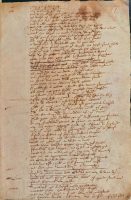
The flood of desperate refugees pouring out of Syria dominates the news this Labor Day weekend. It’s said to be the largest refugee crisis since World War II. What have Thomas More and William Shakespeare got to do with it? Shakespeare’s unfinished play Sir Thomas More was not accepted as the Bard’s until relatively recently. It’s now generally conceded to be his handiwork – in fact, it’s the only play to exist in his own hand (apparently the scholarly consensus seems to agree that it is indeed his handwriting).
When White Poets Pretend to Be Asian
by Hua Hsu
In 1991, literary magazines around the United States began receiving mysterious packages containing the poems of Araki Yasusada, a deceased and entirely unknown Japanese poet with a spectacular backstory: he was a lonesome Hiroshima survivor whose absorbingly spare lines about the bombing and his small life in its wake seemed to riff on Roland Barthes, Kenneth Rexroth, Jack Spicer, and other figures of the Western avant-garde. The poems were often accompanied by diary fragments, scraps of paper with translations and exercises or a sketch of his face. Prominent journals published and praised Yasusada’s work, which was unusually experimental given his seeming isolation; there was a book in the works
Forms of Self-Exposure
by Elaine Feinstein
There have always been women poets, and their themes and passions have been as various as the cultures in which they wrote. So I am not seeking to describe the nature of poetry written by women in general. However, I have lived through a half-century in which the status of women poets has changed out of all recognition. In Britain fifty years ago we might have been caricatured as spinsterish, faintly comic. Women poets now have a place in the public world – they are Professors of Poetry in great institutions and indeed the three present Poets Laureate in these islands are all women. The genders which seemed so immutable in the post-war world have slipped and shifted. My question this morning is this: Has the entry of so many fresh voices into the art significantly changed the nature and form of poetry in our time? Should we expect that? I don’t have a ready answer, but I have a few questions and a tentative proposition.
Shakespeare’s unfinished play “Sir Thomas More” is strangely relevant to the Syrian refugee crisis.
Drafts & Fragments
LISTEN: Missouri Poet Laureate William Trowbridge's Unofficial Missouri Poem
by Laura Spencer
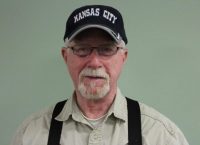
William Trowbridge is Missouri’s third poet laureate. He was appointed to a two-year term, and that was three years ago. But, he says, he continues to serve because he hasn’t been told to stop — yet.
That Time Beat Poet Allen Ginsberg was Booed by Candlestick Fans
by Peter Hartlaub

Since Candlestick Park was demolished earlier this year, only my happiest memories have risen from the rubble. The touchdowns, chocolate malts, Randy Cross, Croixs de Candlestick, Frisbee dogs, Huey Lewis and the News huddled in jackets on the sideline and the roar of the crowd in approval of it all. But let us never forget that for all their passion and resilience, Giants fans could be complete jerks. Like the time in 1994 that they booed Beat poet Allen Ginsberg.
Of Plums and Iceboxes
by Sadie Stein
Because my neighbors were out of town, I had been offered the gift of their weekly fruit and vegetable share from Community Share Agriculture. And because they are a family of four, when I came home from the nearby church where the produce is distributed, it was with bags heavy laden with corn, summer squash, celery, peppers, and stone fruits. It was more than I could eat.
Poetry In the News
Joy Harjo Receives $100,000 Poetry Prize
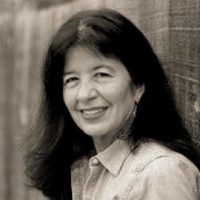
Poet Joy Harjo, known for wedding social consciousness to her Muskogee Creek heritage and the Southwest America landscape, has won a $100,000 prize for lifetime achievement. Harjo, 64, received the Wallace Stevens Award for “proven mastery,” the Academy of American Poets announced Thursday. The academy praised Harjo for her “visionary justice-seeking art” and for transforming “bitterness to beauty” and “trauma to healing.”
Juan Felipe Herrera Wants to Write an Epic American Poem … with You
The first Latino U.S. Poet Laureate, Juan Felipe Herrera, has announced that an epic poem about the American experience — including contributions from everyday Americans — will be part of his laureateship project, "La Casa de Colores." The poem, titled "La Familia," will be updated monthly, with a new theme centered on U.S. life and culture announced each month on the Poetry and Literature Center blog. Herrera himself will compile the contributions to the epic poem.
Family Protests White Poet’s Use of Chinese Pen Name
Controversy erupted in the poetry world earlier this week when it was discovered that a poem included in the annual “Best American Poetry” anthology was written by a white poet, Michael Derrick Hudson, who had submitted it to a journal under the Chinese pseudonym Yi-Fen Chou. Now it turns out that pseudonym may have come from a real person.
The Academy of American Poets awarded poet Joy Harjo the Wallace Stevens Award for “proven mastery,” a $100,000 prize.
New Books
For Dear Life by Ronald Wallace
[Paperback] University of Pittsburgh Press, 88 pp., $15.95
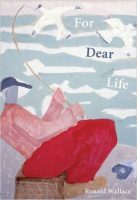
In For Dear Life, with accessibility, wit, and humor, Ronald Wallace evokes a wide variety of subjects that range from the traditional themes of lyric poetry—love, death, sex, the natural world, marriage, birth, childhood, music, religion, art—to the most unexpected and quirky narratives—an ode to excrement, a catalogue of comic one-liners, a celebratory testimonial to his teeth.
Impossible Bottle: Poems by Claudia Emerson
[Paperback] LSU Press, 80 pp., $17.95
Claudia Emerson published six poetry collections with LSU Press, including Late Wife, Secure the Shadow, and The Opposite House. A professor of English and member of the creative writing faculty at Virginia Commonwealth University in Richmond, Emerson served as the poet laureate of Virginia and won numerous awards for teaching and writing―including the 2006 Pulitzer Prize for Poetry―before her death in 2014.
Shirt in Heaven by Jean Valentine
[Paperback] Copper Canyon Press, 80 pp., $16.00
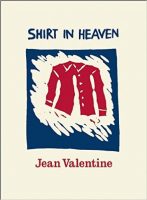
Quietly marked by elegy and memory, National Book Award winner Jean Valentine's thirteenth book is empowered by her signature clear music and compassion. Valentine leads us chronologically from childhood drawings and wartime memories to the present, where she addresses aging and the loss of loved ones. These poems of tender grace reflect on the small histories few ever fully see.
The Drowned Book by Sean O'Brien
[Paperback] Pan Macmillan, 96 pp., $16.95
Many of the poems in Sean O’Brien’s new collection take their emotional tenor and imaginative cue from his acclaimed translation of Dante’s Inferno, and occupy a dark, flooded, subterranean world, as dramatically compelling as it is disquieting. Circumstances have compelled O’Brien to return repeatedly to the elegiac form, and The Drowned Book contains a number of powerfully moving poems written in memory of fellow poets and artists. The Drowned Book again shows O’Brien as master of the authoritative line, and underscores his pre-eminence among contemporary English poets.
Update by Dennis O’Driscoll
[Paperback]Copper Canyon Press, 80 pp., $16.00
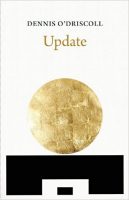
Update, the final collection of work by the late Dennis O'Driscoll, weaves a memoir of his past into the state of the world today. The poems embark on a vivid journey through consumerism, our environment, and our fragile existence. Update is O'Driscoll's parting gift, granting a shimmering glimpse of what it truly means to be human.
In “For Dear Life,” Ronald Wallace evokes everything from love, death, sex, the natural world, an ode to excrement, and a catalogue of comic one-liners.
Correspondences
Jane Satterfield and Adrianne Kalfopoulou
In this interview from February 13, 2015, Jane Satterfield and Adrianne Kalfopoulou discuss interfaces of genre, biculturalism, motherhood, the plasticities of writing, eros, Sylvia Plath, and appetite.
Jane Satterfield: Let me first say that I adore the vertiginous ride that is Ruin. All those border-crossings—literal and literary—through rough terrain. There’s a life that’s ruined by a country’s shuttered economy and the life that’s ruined and remade after a marriage has collapsed. But what seems to capture your interest most is the everyday collision of private and public life. Your title immediately brings to mind images of fractured antiquity; it also brought to mind Don DeLillo’s extended essay, “In the Ruins of the Future,” which first appeared in Harper’s in the immediate aftermath of 9/11. Would it be impertinent to see some kinship there in your questioning of narratives and your understanding of time as represented in history and art? Time as it’s fractured by travel and technology? Your book radiates through themes—evading, or gracefully side-stepping—the predictable, epiphanic narrative structure that seems to be the unavoidable hallmark of popular memoir. I’d love to hear a bit about the book’s backstory and birth pangs, how it found its final shape.
A Los Angeles Poet's Revolution of Everyday Life
by E. Tammy Kim
In this high-turnover city, the Eastside, more than the moneyed west, has seemed to hold on to its past. There are eccentric bungalows and blanched murals, and shopping corridors with the foot traffic and feel of a village market. Neighborhoods such as Lincoln Heights, El Sereno and City Terrace have thus far escaped the peculiar affliction of the upscale coffee shop. Their residents and business owners are still predominantly Latino and Asian, and largely working class — though perhaps not for long. According to trend-spotters, East LA is the molten core of gentrification, full of hipsterpreneurs with backing from friends in venture capital.
Interview with Poet BJ Ward
by Michael Young
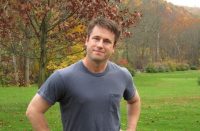
Michael T. Young: Thank you, BJ, for agreeing to an interview. Your newest collection, Jackleg Opera, is your fourth, and is a new and collected poems. Could you comment on putting it together: how and if you worked on the new poems to connect thematically in any way to the whole or just worked on the newer poems independently of any overall cohesion?
Michael Young recently interviewed the poet BJ Ward.
Envoi: Editor’s Notes
Lessons from the Past: Howard Moss
Is the first line—or even the whole poem—dreamwork? Or fancy footwork? Is it the agile cleverness of someone tuned up to receive what the receiver has taken in—and given out—before? It is hard to say. The freshness of certain poets gets lost, even as the skills increase. Yeats and Stevens and Williams got better as they got older. Other poets were not so lucky. Two things are equally boring in art: a lock of skill and too much of it.
—Howard Moss, "The First Line" from Whatever Is Moving
“Is the first line—or even the whole poem—dreamwork? Or fancy footwork?” —Howard Moss